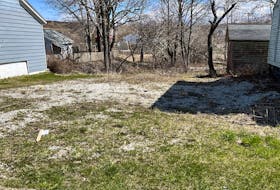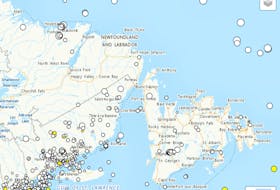ST. JOHN'S, N.L. — Newfoundland and Labrador’s chief medical officer of health says reducing the time of self-isolation for rotational workers is a matter of balancing risk with mental health, but many workers still say they’re left out in the cold.
Dr. Janice Fitzgerald announced Friday that workers arriving home to the province from outside the Atlantic Bubble will now only have to isolate for seven days rather than the 14 days required of anyone else.
At any point from Day 5 to Day 7, they will have to call 811, request a COVID-19 test and get a negative result before that happens. Fitzgerald said test results are usually known within 48 hours.
The new rule comes into effect Wednesday. Any worker who’s already home and has been isolating for at least five days already at that point will qualify for the new guidelines.
Workers will still be required to avoid large crowds and wear a non-medical face mask when around others.
International workers, however, fall under federal orders and will still have to isolate for 14 days.
Big outcry
In the past month, thousands of rotational workers in the province have lobbied hard for relief from the cycle of work and house arrest they feel when they return home.
And many were not at all happy with Friday’s announcement because they’re usually home only 10 days or less.
“I came back here seven years ago for a life of freedom. Now I’m locked up like jail." — Trevor Bolt
“This government has got us f---ed over,” said Trevor Bolt of Grand Le Pierre.
Bolt works in northern Ontario, and is home for only seven to 10 days at a time. He says a majority of the company’s employees there are Newfoundlanders with similarly short turnarounds.
“If I have to do this every time I go home, why in the hell am I paying taxes?” he said in a phone interview. “You’ve got no freedom whatsoever.”
Bolt said he’s seriously considering moving away.
“I’ve been thinking about that for the last few days,” he said.
“I came back here seven years ago for a life of freedom. Now I’m locked up like jail."
Craig Connors of Mount Pearl said Friday’s announcement was a step in the right direction, but doesn’t go nearly far enough.
Connors is usually home for four weeks at a time and welcomes the extra time the new measure will allow him.
But he has no intention of ignoring fellow workers who aren’t so lucky.
“I’m still a rotational worker and I’m still going to stand up for those other guys, men and women, who sacrifice to go outside the province because they can’t find meaningful employment here,” he told The Telegram.
“This takes an additional mental toll on them, and they’re very frustrated.”
One worker from central Newfoundland, a diamond driller who rotates in and out of Ontario, said he’s decided he’s just going to flout the law.
“I’m a rotational worker and when I fly in next time I’m refusing to sign papers and I’m planning on being peacefully arrested to protest,” he said.
“Rotational workers have been through enough. Somebody has to take a stand.”
No specifics
Fitzgerald said Friday that public-health officials will re-evaluate the order after four weeks to see whether any further relaxation is possible.
She would not specify what that might be.
“I certainly wouldn’t want to make any predictions at this point, four weeks out. There are lots of things we would have to consider.”
She also reassured those who feel the decreased restrictions may put the community at higher risk.
“Any time public-health orders are relaxed, people may feel apprehension or concern about potential outbreaks. Please be assured that the changes in public-health measures are closely monitored and will be adjusted quickly if required.”
Peter Jackson is a Local Journalism Initiative reporter covering health for The Telegram









